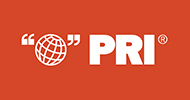WASHINGTON — Millennials are demanding Facebook to do more to protect their personal information, as the social media company’s co-founder and CEO faced skeptical lawmakers on Capitol Hill on Tuesday and apologized for not doing enough to safeguard users’ data.
“It was my mistake and I’m sorry,” Mark Zuckerberg testified before the U.S. Senate, acknowledging at least 87 million users—most of them in the U.S.—had their data obtained by Cambridge Analytica, a London-based data firm under scrutiny for its possible role in meddling with the 2016 presidential election.
On Monday, those who may have been affected by the data leak were notified at the top of their Facebook newsfeed. The information was collected by users’ interaction with an app called “This is Your Digital Life” which scraped data from roughly 270,000 individuals who downloaded the app, as well as information on all of their friends.
Some Millennials, the age demographic with the highest rate of social media use, feel betrayed.
“Every company that has people’s information, they have the trust of the people,” said Ruby Anaztazio, a 17-year-old who was visiting the Capitol from Texas. “They should work hard to make sure that the people they represent are protected.”
According to a poll conducted by CBS News this week, 68 percent of millennials surveyed don’t think Facebook will be able to protect user data going forward.
“I’m not even a little bit confident that Facebook will be able to control privacy and data issues,” said Kelly Hageman, a 34-year-old from Chicago. “They may pretend to try if slapped with a big enough fine, but I think the damage has been done.”
Zuckerberg assured senators that his company would find out how Cambridge Analytica was able to access personal information from so many users. He also announced a number of steps Facebook is implementing to ensure more security on users’ data and privacy.
Measures include added safeguards to reduce the amount of data given to an app developer, as well as removing developer’s access to a user’s data if the app has not been used in the previous three months, among other protections.
Regardless of these new regulations, experts say that users should not rest assured that the information shared on Facebook will remain private.
“The only reason we’re able to use Facebook for free is because they gather information on profiles and sell that to commercial customers who run ads targeting us,” explained Hans A. Spakovsky, a manager and senior legal fellow at the Heritage Foundation.
During the hearing, Sen. Richard Blumenthal (D – CT) echoed Spakovsky’s concern about Facebook’s failure to prioritize user privacy over the platform’s business model. Blumenthal also cautioned that he, and his fellow senators, have witnessed an “apology tour” from other chastened company CEOs before.
“Your business model is to monetize user information to maximize profit over privacy, and unless there are specific rules and requirements enforced by an outside agency, I have no assurance that these kinds of commitments are going to produce action.” Blumenthal told Zuckerberg.
Despite the scandal, most millennials have indicated they will not be deleting their Facebook accounts. However, 41 percent of the 18-29 age group surveyed in the CBS News poll said they will be sharing less personal content online.
“Over the years I’ve been so connected with different people in different parts of my life [through Facebook],” said Charles Jefferson, a 26-year-old millennial who was notified his information was leaked to Cambridge Analytica. “We have photos videos and memories that we’ve collected on Facebook and we don’t want to necessarily lose that or have to back that stuff up.”
While remaining on Facebook, Jefferson said he’ll have to re-examine his friend list on the social media site and do some “spring cleaning”, but his confidence in the platform has been shaken.
“Zuckerberg has a lot to do before he can regain my trust again,” Jefferson said.


